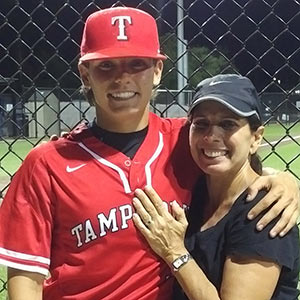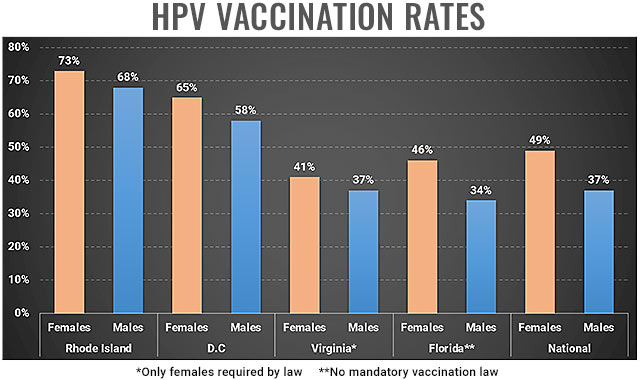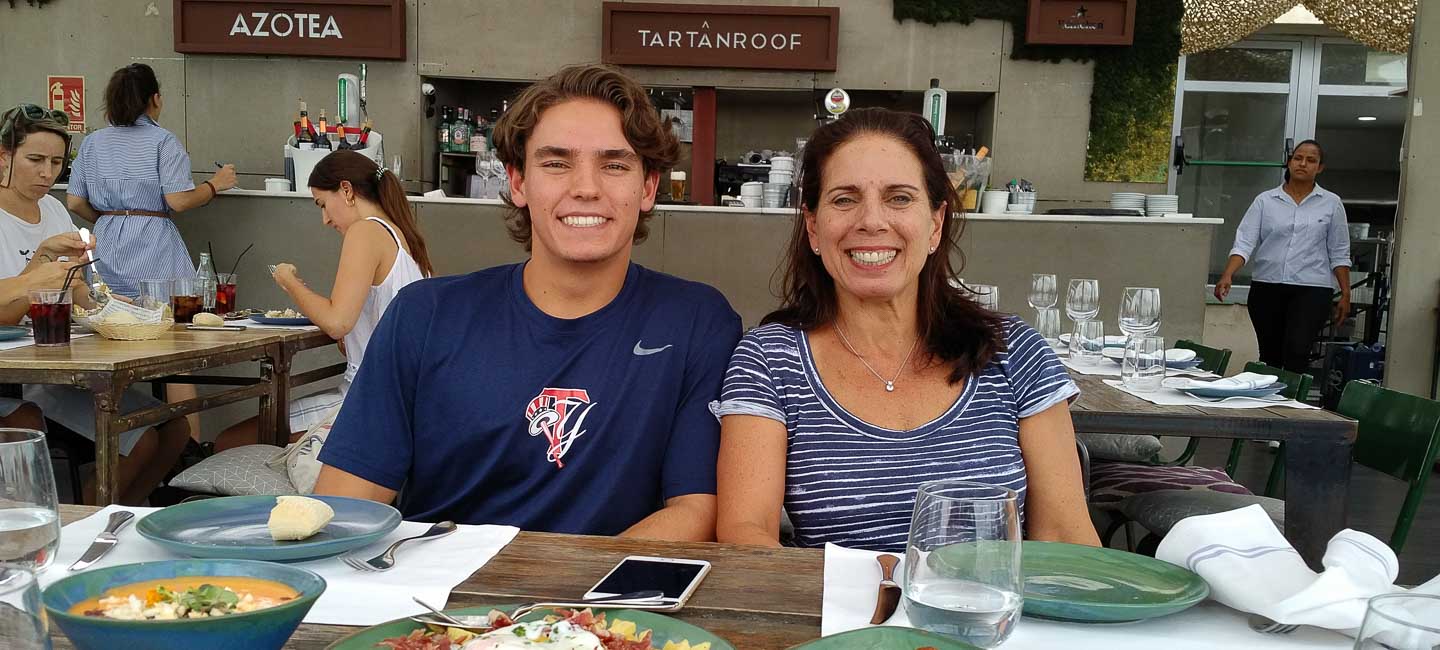Your Chance to Eliminate Cancer
"It was a simple series of shots, similar to a flu shot. It was painless and lasts a lifetime." That’s how Aaron Giuliano Muench recalls his HPV vaccination experience. Aaron, son of Moffitt researcher Dr. Anna Giuliano, is believed to be the first boy to receive the HPV vaccine in Florida. He was 12 at the time and said it was his mom's belief in the vaccine that calmed any nerves he may have had.
"My mom wanted me to be vaccinated because she knew it would protect me from human papillomavirus and HPV-related cancers in the future," said Aaron.
 HPV is so common that nearly everyone — men and women — will get it at some point in their lives, according to the Centers for Disease Control and Prevention. Nearly 80 million Americans, or one out of four people, are infected right now. And of those millions, more than 40,000 will be diagnosed with an HPV-related cancer this year. The staggering figures are why the International Papillomavirus Society has declared March 4 International HPV Awareness Day. The goal is to educate about the importance of HPV vaccination and cervical cancer screening.
HPV is so common that nearly everyone — men and women — will get it at some point in their lives, according to the Centers for Disease Control and Prevention. Nearly 80 million Americans, or one out of four people, are infected right now. And of those millions, more than 40,000 will be diagnosed with an HPV-related cancer this year. The staggering figures are why the International Papillomavirus Society has declared March 4 International HPV Awareness Day. The goal is to educate about the importance of HPV vaccination and cervical cancer screening.
HPV vaccination can be a hot-button issue. The state of Florida introduced legislation earlier this year that would make HPV vaccination a requirement for admission to public schools. Rhode Island, Virginia and the District of Columbia have already made HPV vaccination mandatory for school attendance.
Aaron, who is now in college, says more education and awareness about HPV and vaccination is needed. "There is a lot of talk on campus about HIV and how to protect yourself from that virus, but not HPV."
Dr. Giuliano, who is the founder of the Center for Infection Research in Cancer at Moffitt, has already been working with fellow researchers, as well as state and federal lawmakers, to spread the word. She says in the United States only half of females ages 13 to 17 have received the HPV vaccine. And that number is much lower, 37 percent, for males.
HPV vaccination protects against the most common types of HPV that cause cancer. The vaccine is recommended for females ages 9 to 26 years old and males ages 9 to 21 years old. The Florida Department of Health provides the vaccine for free up to age 18. And in most cases, the HPV vaccine is covered by health insurance.
"One in 20 cancers is caused by HPV infection, but with proper vaccination, the end of at least one HPV-related cancer could be in sight. We could eliminate cervical cancer. Think about it. We can get to the point where we no longer see cervical cancer in the United States, but the key is vaccination."
To learn more about HPV screening and vaccination, visit Moffitt.org/HPV.




